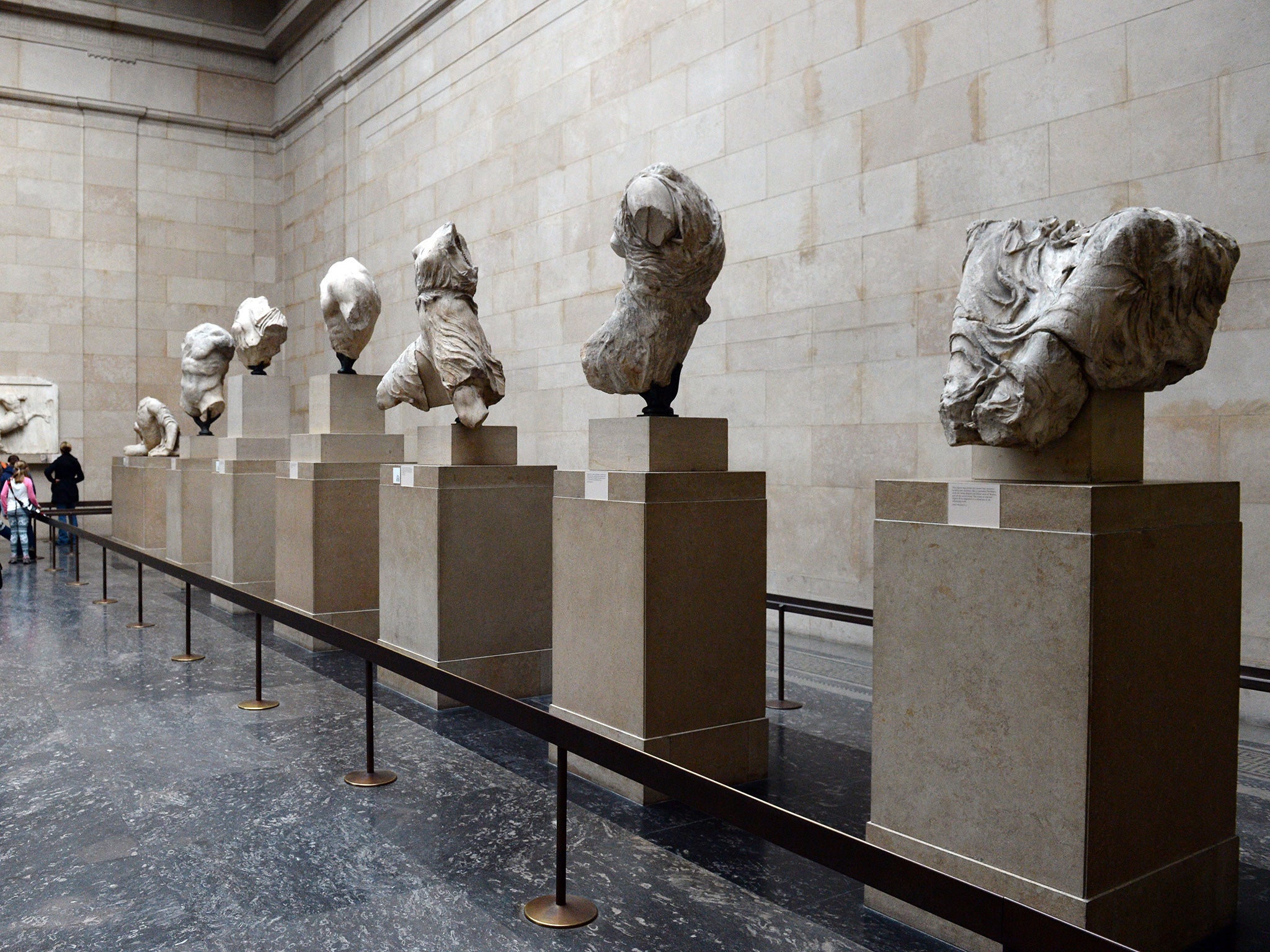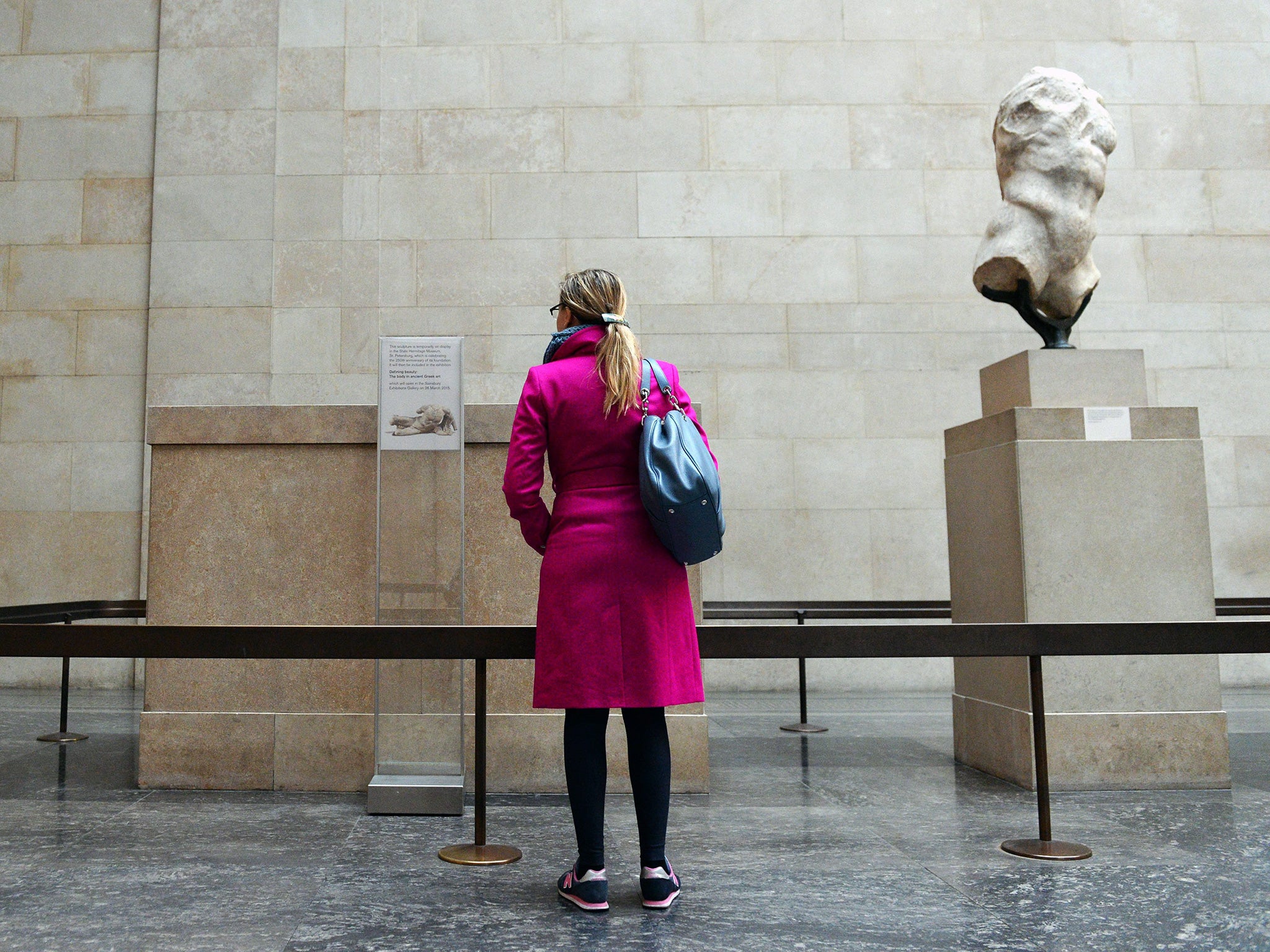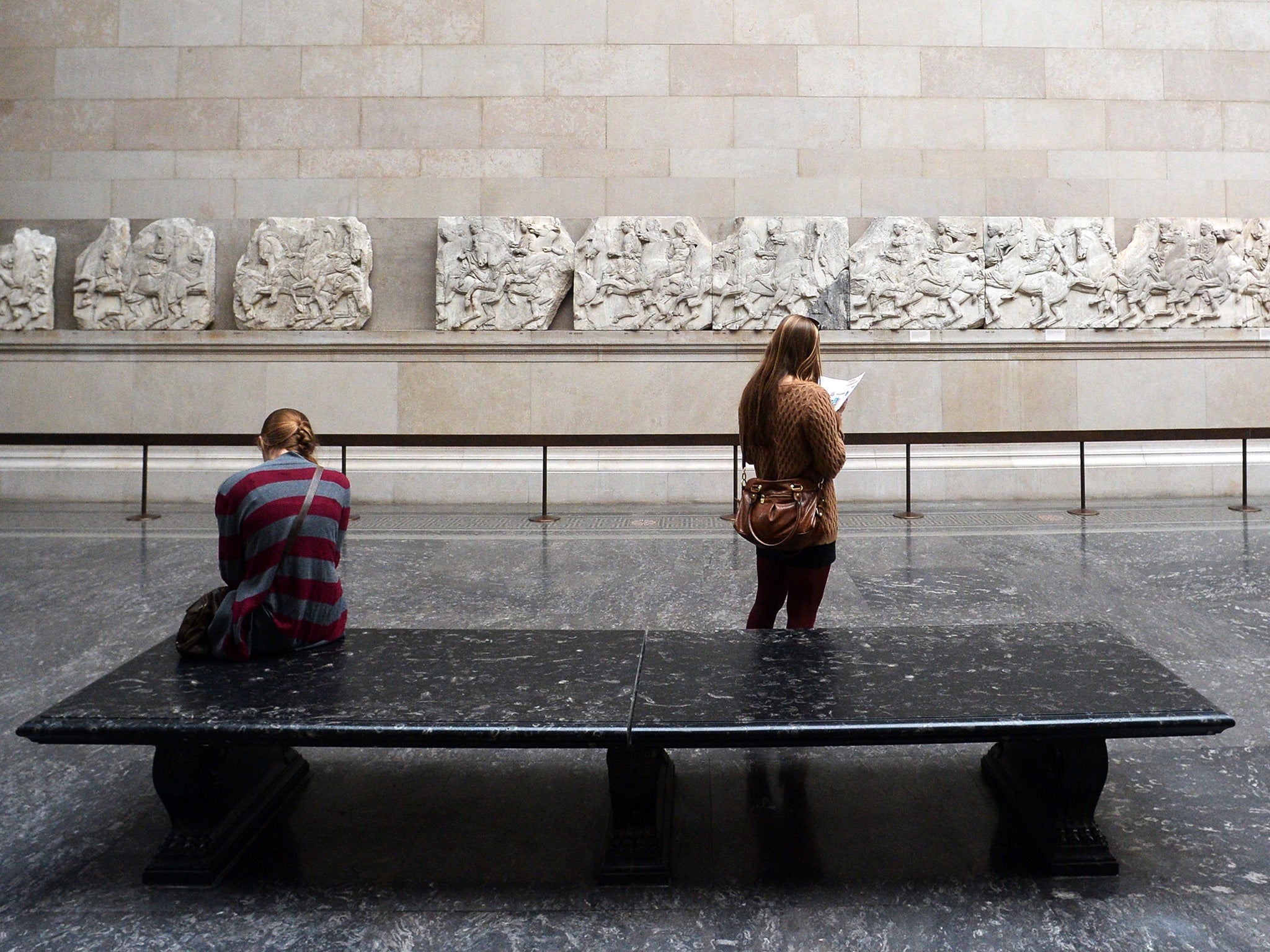British Museum offers to lend Elgin Marbles back to Greece
But the UK rejected a request to take part in a United Nations mediation process about the contentious ownership of the 2,500-year-old sculptures

The British Museum has offered to discuss lending the so-called Elgin Marbles back to Greece, after the UK rejected a request to take part in a United Nations mediation process about the contentious ownership of the 2,500-year-old sculptures.
Britain’s rejection of arbitration talks brokered by the global heritage body Unesco could trigger legal action by Athens in an international court in an attempt to reclaim the ancient sculptures, depending on the outcome of advice from its team of high-profile lawyers including Geoffrey Robertson QC and Amal Clooney.
But in a letter to Unesco, Sir Richard Lambert, the chairman of the British Museum’s board of trustees, has offered to hold direct talks with the Acropolis Museum over the pieces held by the Bloomsbury Square institution.
“The British Museum has routinely lent to Greece…” Sir Richard wrote. “The scholars of the British Museum and of other institutions that hold Parthenon sculptures enjoy excellent collaborative relationships with Greek museums and universities. These have included collaboration on research projects, publications and exhibitions.

“As trustees we attach great importance to these joint ventures, and believe that both the study of the Parthenon sculptures and their display to the widest possible audiences illuminates not only the Classical Greek achievement but also its impact on the world.
“We would invite our colleagues in Greek museums … to explore new ways of enabling the whole world to see, study and enjoy the sculptures of the Parthenon.”
The Independent understands that this could extend to a loan agreement. But Athens has previously rejected such an idea, because this would involve the tacit acceptance of the British Museum’s claim of ownership over the ancient treasures, which many in Greece – and some in the UK – believe Lord Elgin essentially stole.
Greece has sought the return of the marbles, stripped from the Parthenon temple by the Scottish peer in the early 19th century, since its victory in the War of Independence with the Ottoman Empire in 1832. About half of the surviving sculptures are in London with most of the rest in the purpose-built Acropolis Museum in Athens.
Controversy over the issue flared again last year when one of the marbles was lent abroad for the first time, to the Hermitage Museum in St Petersburg, Russia.
A spokeswoman for the British Museum expressed hope that Athens would relent over its opposition to a loan. “That has been their position, but obviously it would be great if we could revisit that – that’s the sentiment of the letter,” she said, noting that there was now a “different government in power” in Greece.
The new Prime Minister, Alexis Tsipras, has spoken in the same breath about the need for debt relief for the embattled Greek economy and the return of the sculptures.
The Culture Minister, Ed Vaizey, also wrote to Unesco to reject the mediation offer, saying the Parthenon sculptures “were legally acquired by Lord Elgin” and so there was nothing to discuss. However, he also said there was scope for “further co-operation” between the British and Acropolis museums.

Eddie O’Hara, the chairman of the British Committee for the Reunification of the Parthenon Marbles, said the UK’s rejection of Unesco mediation was “deeply disappointing”, while the loan offer was “very clever” but disingenuous. “They play the game of offering a loan because they know the Greeks would never accept a loan,” he said.
A spokeswoman for the Greek Culture Ministry said it would make a renewed attempt to negotiate through Unesco. Asked about a possible loan, she said she could not comment about the Greek government’s view, but added: “All these conversations could start if the British Government was willing to use Unesco and start negotiations with the Greek government.”
Asked if Greece was disappointed, she said: “For Greece, it has been a long struggle for these sculptures, so this is not a new thing.”
Polls in the UK have consistently shown strong public support for the return of the marbles to Greece, which would spark a national celebration there.
Join our commenting forum
Join thought-provoking conversations, follow other Independent readers and see their replies
Comments
Bookmark popover
Removed from bookmarks